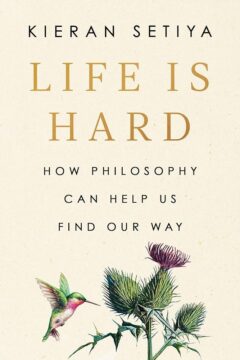Kieran Setiya at The Point:
 In the past decade or so, there’s been a flowering of philosophical self-help—books authored by academics but intended to instruct us all. You can learn How to Be a Stoic, How to Be an Epicurean or How William James Can Save Your Life; you can walk Aristotle’s Way and go Hiking with Nietzsche. As of 2020, Oxford University Press has issued a series of “Guides to the Good Life”: short, accessible volumes that draw practical wisdom from historical traditions in philosophy, with entries on existentialism, Buddhism, Epicureanism, Confucianism and Kant.
In the past decade or so, there’s been a flowering of philosophical self-help—books authored by academics but intended to instruct us all. You can learn How to Be a Stoic, How to Be an Epicurean or How William James Can Save Your Life; you can walk Aristotle’s Way and go Hiking with Nietzsche. As of 2020, Oxford University Press has issued a series of “Guides to the Good Life”: short, accessible volumes that draw practical wisdom from historical traditions in philosophy, with entries on existentialism, Buddhism, Epicureanism, Confucianism and Kant.
In the interest of full disclosure: I’ve planted seeds in this garden myself. In 2017, I published Midlife: A Philosophical Guide, and five years later, Life is Hard: How Philosophy Can Help Us Find Our Way. Both could be shelved without injustice in the self-help section. But both exhibit some discomfort with that fact. When I wrote Midlife, on the heels of a midlife crisis—philosophy, which I had loved, felt hollow and repetitive, a treadmill of classes to teach and papers to write, with tenure a gilded cage—I adopted the conventions of the self-help genre partly tongue-in-cheek.
more here.
